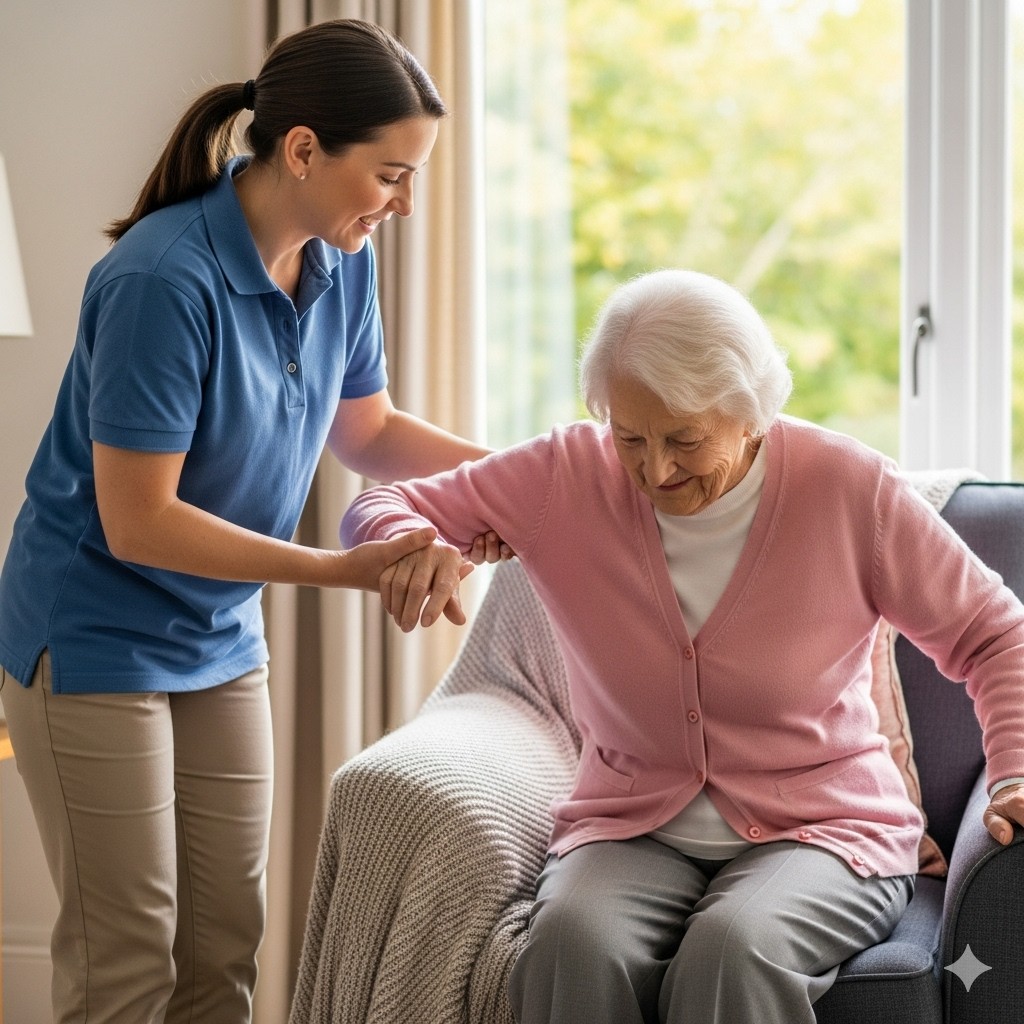Your Journey to Becoming a Carer Starts Here
Discover the essential training, skills, and certifications you need to begin a rewarding career in caregiving. This guide will walk you through every step of the process.

The Carer Pathway
This section outlines the typical journey one takes to become a professional carer. It provides a high-level roadmap, from initial skill assessment to finding your first role.
Assess Your Skills
Understand the core soft and hard skills required for the role.
Complete Training
Undertake mandatory training like health & safety and first aid.
Gain Certifications
Pursue formal qualifications to advance your career prospects.
Find a Role
Apply for positions in various care settings with confidence.
Essential Caregiving Skills
Being a great carer is about more than just qualifications; it's about personal attributes and practical abilities. Click on each card to learn more.
Soft Skills
Hard Skills
Training & Certification Deep Dive
Explore the specifics of carer education. Switch between mandatory baseline training and optional formal certifications that can help you specialize.
-
Health and Safety: Understanding procedures to ensure a safe environment for both the carer and the person receiving care.
-
First Aid and CPR: Essential life-saving skills for handling medical emergencies.
-
Manual Handling: Correct techniques for lifting and moving people to prevent injury.
-
Infection Control: Practices to prevent the spread of illness, including proper hygiene.
-
Safeguarding Vulnerable Adults: Recognizing and reporting signs of abuse or neglect.
-
Food Hygiene: Safe practices for preparing and handling food.
-
NVQ/QCF Levels 2, 3, 4 in Health and Social Care: Nationally recognized qualifications that demonstrate competence in a range of care settings.
-
Specialized Training: Courses focusing on specific conditions like Dementia Care, Palliative Care, or Learning Disabilities.
-
Medication Administration: Certified training on safely administering medication.
-
Advanced First Aid: In-depth training beyond the basic requirements.
Typical Training Program Composition
Most comprehensive carer training programs balance theoretical knowledge with hands-on experience.
Where to Find Accredited Courses
Finding a reputable training provider is a crucial step. This section provides a list of well-regarded organizations and platforms.
National & Charitable Organizations
Organizations like the Red Cross and St John Ambulance often provide essential courses like First Aid and CPR. These are widely recognized and respected in the care industry.
Further Education Colleges
Local community and technical colleges are excellent sources for formal qualifications like NVQs or diplomas in Health and Social Care. These programs often combine classroom learning with practical placements.
Specialized Training Providers
Look for providers accredited by bodies like City & Guilds or NCFE. Many private companies offer a wide range of mandatory and specialized online or in-person courses.
Care Sector Job Boards
Websites dedicated to care jobs often have training portals or partnerships with course providers. Many employers also offer in-house training as part of their onboarding process.